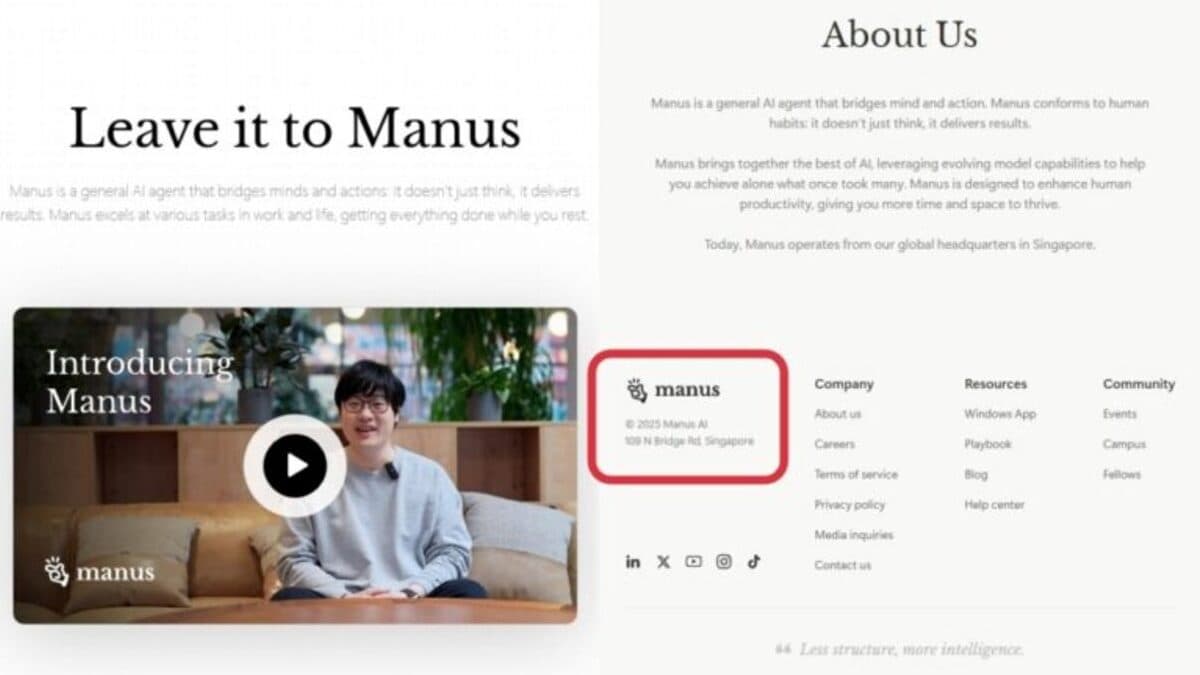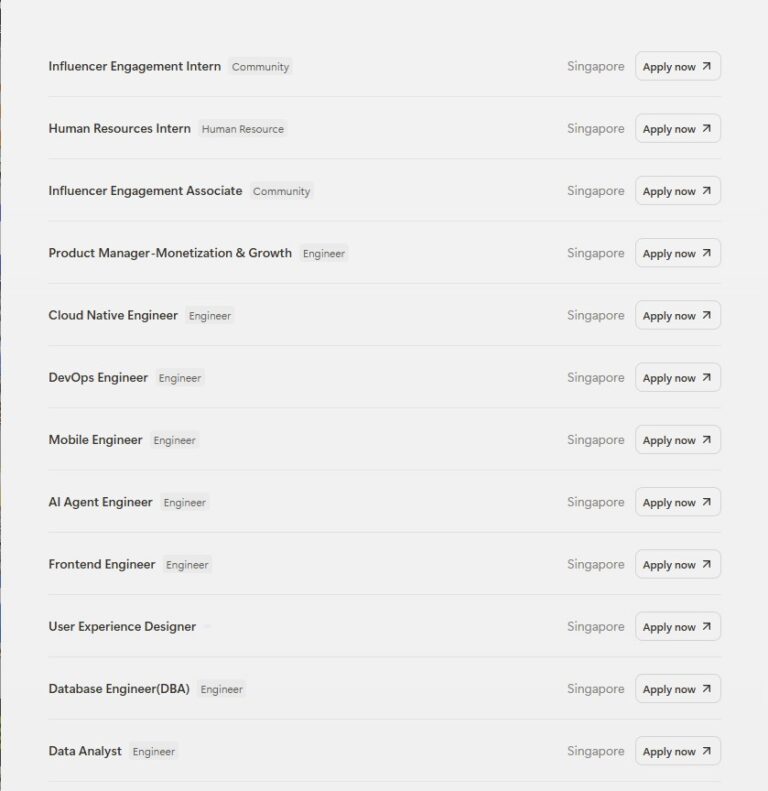Manus AI moves global headquarters to Singapore amid US chip curbs
Chinese artificial intelligence start-up Manus AI has shifted its global headquarters from China to Singapore, as it seeks to navigate tightening US export controls and improve access to advanced chips essential for training its AI models.

- Manus AI has officially moved its global headquarters from China to Singapore
- The move comes amid US export restrictions on Nvidia chips vital for AI training
- The company has laid off part of its Chinese workforce and moved key staff to Singapore
SINGAPORE: Chinese artificial intelligence (AI) start-up Manus AI has relocated its global headquarters from China to Singapore as the firm looks to mitigate challenges in securing advanced chips vital for training its algorithms.
The decision coincides with workforce reductions in China and reflects a broader trend of Chinese tech companies adjusting operations in response to mounting US scrutiny.
During a keynote session at the SuperAI conference in Singapore on 18 June 2025, Manus AI co-founder and chief product officer Zhang Tao confirmed that the company’s main base is now in Singapore.
Zhang also noted that Manus maintains offices in Tokyo and California.
The “About Us” section of Manus AI’s official website has since been updated to list Singapore as the company’s global headquarters.
Access to Nvidia chips under US export controls
Manus AI’s decision to relocate has fuelled speculation that the move was designed to facilitate more reliable access to Nvidia’s high-end chips, which are essential for training large-scale AI models.
Many Chinese firms face significant obstacles in acquiring these chips due to US export controls restricting advanced semiconductor sales to China.
Like several other Chinese tech firms working in frontier AI development, Manus AI’s ties to China have drawn increasing scrutiny from Washington.
A report by Semafor in May 2025 revealed that the US Treasury Department was reviewing a US$75 million financing round for Manus AI led by California-based venture capital firm Benchmark.
The review aimed to determine whether the investment complied with new disclosure rules for American funding of technologies that could impact national security.
Layoffs and transfer of key staff
According to Chinese media outlet Sina Finance, Manus has laid off parts of its domestic workforce and relocated core technical staff to Singapore.
The company’s statement to Sina Finance confirmed that the restructuring aimed to improve operational efficiency, stating: “Based on the company’s own operating efficiency considerations, we have decided to adjust some business teams. The company will continue to focus on core business development and improve overall operational efficiency.”
Manus AI reportedly still employs around 120 people in China. While streamlining its domestic operations, the firm has also begun recruiting new talent in Singapore.
Hiring surge in Singapore
Job listings on Manus AI’s website indicate active hiring for roles such as data analyst and AI agent engineer, suggesting a major talent expansion effort in Singapore.
Industry observers say the relocation aligns with Manus AI’s ambition to strengthen its global presence and secure a more stable base of operations amid the uncertain geopolitical landscape.

Falling user base amid rising competition
The relocation and internal restructuring come as Manus AI grapples with a decline in user engagement.
Chinese media reports indicate that the company’s monthly active users fell from about 20 million in March to around 10 million in May 2025.
The drop has been attributed to rising competition from Chinese tech giants such as ByteDance and Baidu, whose rival AI products — Coze Space and AgentBuilder — have gained traction among domestic users.
Manus AI’s development and valuation
Manus, developed by China-based start-up Butterfly Effect, made waves in the AI community after its invite-only debut in March 2025.
The platform’s advanced capabilities in handling complex tasks positioned it as a leading symbol of AI innovation in China, following the earlier success of DeepSeek.
In April 2025, Bloomberg reported that Benchmark’s investment boosted Manus AI’s valuation five-fold to nearly US$500 million.
However, the ongoing US Treasury review could complicate future fundraising efforts from American investors, particularly as Washington tightens oversight of China-linked AI ventures.
Singapore as a strategic base
Singapore has increasingly become a preferred hub for Chinese-origin tech companies seeking to manage tensions between Washington and Beijing.
Fast-fashion giant Shein, for example, highlights its Singapore headquarters while maintaining its core supply operations in China. Similarly, TikTok operates its regional headquarters in Singapore despite links to Beijing-based parent company ByteDance.
Other AI start-ups have also followed a similar path. HeyGen moved its base to the United States last year, while Genspark.AI — founded by former Baidu employees — established operations in the US to diversify market exposure.
Analysts believe Manus AI’s Singapore relocation could help it attract Western clients and investors, while avoiding potential restrictions faced by entities directly based in China.
While Manus AI consolidates its leadership and engineering teams in Singapore, its parent company, Butterfly Effect, remains headquartered in China.







